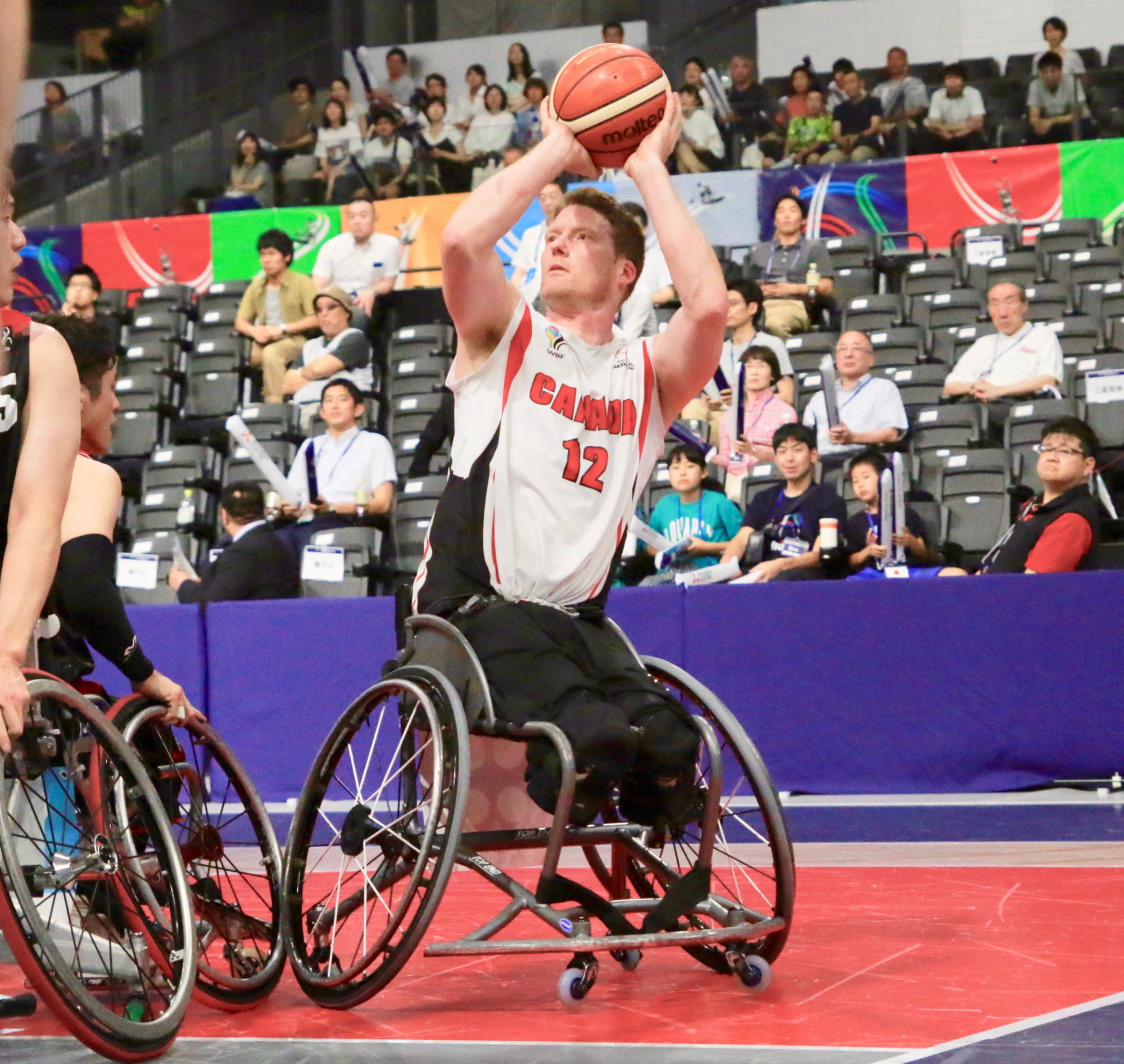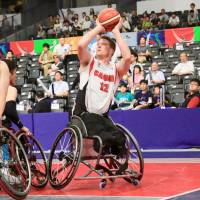When he has the ball in his hands, his opponents are extra careful, and fans in the stands hold their breath to see if something spectacular could happen.
Pat Anderson is widely considered one of the best players in the world and people often refer to him as the Michael Jordan of wheelchair basketball.
"You can never hear it too many times," Anderson said with a laugh about the nickname, after Canada's 64-53 loss to Japan in the four-nation World Challenge Cup at Musashino Forest Sport Plaza in Tokyo on Saturday. "I love it. I love it and it makes me laugh because there's only one Michael Jordan. And I don't really relate to Michael Jordan. He's a killer.
"But obviously, I'm flattered. And I like the idea of people having expectations for me to do special things when I'm on the court because of my reputation."
Anderson is classified as a 4.5-point player, and he has been an elite wheelchair hoopster for more than two decades.
In wheelchair basketball, players are given classification from 4.5 to one point, with 4.5 designated having the minimum disability criteria, and each team has to have players on the court whose total points cannot exceed 14.
The 38-year-old captured gold medals at the 2000, 2004 and 2012 Paralympics in Sydney, Athens and London, respectively, for Canada, while he also claimed silver at the 2008 Games in Beijing. That is how he essentially earned the "MJ" status.
But some might want to call him more like LeBron James than Jordan because of his playing style. Just looking at his physical appearance alone, Anderson is built sturdy yet showcases all-around skills like dribbling, passing and 3-point shooting. And despite his size, he often plays outside to initiate his team's offense with his passes. Basically, he is utilized like a point forward.
Anderson admitted that he is not a "pure scorer like Michael," but said with a smile that he will "take Michael" rather than LeBron in the comparison.
While growing up in Edmonton, Anderson had another NBA player that he tried to emulate.
"Steve Nash, I was a big fan of his," Anderson said of the fellow Canadian who won two NBA MVP awards for the Phoenix Suns. "I mean, in some ways, I was inspired 50 percent by wheelchair players, but the other 50 percent, I was watching the NBA and going out in the backyard, trying to translate what they did (on) a wheelchair."
Anderson added that some of the things he tried to copy from NBA players "didn't make sense" playing in a wheelchair, but that those attempts were not necessarily meaningless.
"So, I probably dribble too much, maybe. But I'm not always the most efficient," said Anderson, who lost part of both legs when he was 9 years old after being struck by a drunk driver.
"But I think one of the things that has helped me play at a high level is being able to handle the ball and I think it comes from watching the NBA and being inspired by the ways those guys have the ball and string. And going out in my backyard when I was a teenager and trying to do that. So yeah, totally."
He went on: "And just the way they fight. They fight for every inch in NBA games. The margins are so small in the NBA, they never stop. Mentally (and) physically, competing at the highest level."
For his opponents, Anderson is someone they respect and need to stop.
"His scoring ability is very high and the chemistry between him and his teammates is so good," Renshi Chokai, a 19-year-old player for Japan, said of Anderson.
The Canadian plays for the New York Rollin' Knicks and has competed professionally in Australia and Germany.
"We've been to Canada to play against him before," Chokai said, "so we knew that you cannot let him get closer to the basket, otherwise he will have a much higher percentage to put the ball through the basket."
Anderson had game-highs totals of 25 points, 10 rebound and six assists against Japan. But Chokai gave credit for his own team's victory by limiting Anderson with its defense to some extent.
Getting a boost by beating Canada, Japan eventually captured the tournament championship. Japan is looking to earn its first-ever Paralympic medal at the 2020 Games.
Anderson retired from the international game and did not play at the 2016 Rio de Janeiro Paralympics, where Canada finished 11th in the 12-team competition. He later came out of retirement and is hoping to lead Canada back to elite status.
He said that it was beneficial for his team to compete at the venue, which will be one of the 2020 Paralympics basketball venues.
"Yeah, I think, especially for the young guys," said Anderson, a musician who performs in an indie-pop duo, The Lay Awakes , with his wife Anna.



















With your current subscription plan you can comment on stories. However, before writing your first comment, please create a display name in the Profile section of your subscriber account page.